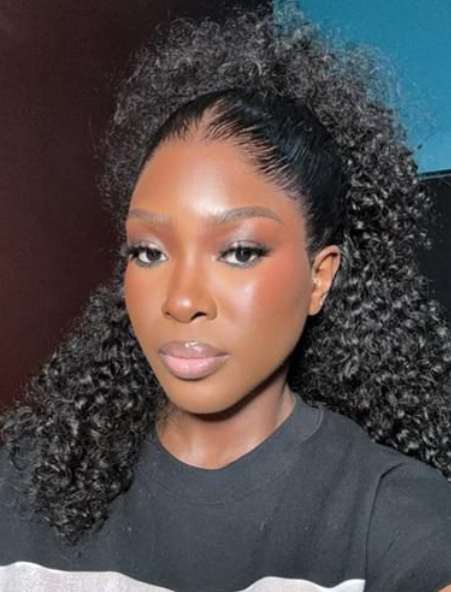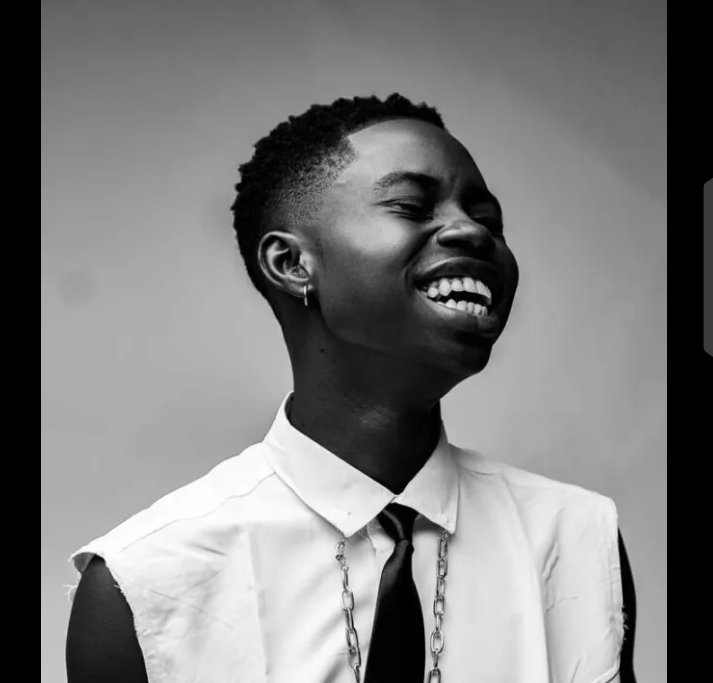
Vee Sparks Online Firestorm as She Condemns Disturbing Old Tweets Linked to Paystack Co‑Founder Ezra Olubi

The social media space erupted once again on Thursday as former BBNaija housemate and singer, Vee Iye, added her voice to the ongoing outrage surrounding a series of disturbing old tweets attributed to Paystack co‑founder Ezra Olubi. What began as a wave of public shock after screenshots resurfaced quickly evolved into a broader cultural conversation about morality, tech leadership, and the peculiar dynamics of online sympathy — all fueled by Vee’s blunt and unapologetic reaction.
The controversy kicked off when several X users dug up years‑old tweets allegedly written by Olubi, containing statements many described as inappropriate, unsettling, and unbecoming of a public‑facing tech executive. The posts spread fast, igniting debates about accountability and the long‑term consequences of digital footprints. But it wasn’t until Vee joined the conversation that the discussion shifted gears and took on a new intensity.
Reacting to the viral screenshots, Vee tweeted: “Those tweets are disturbing. Any babe that dates that guy after all of this should be flogged publicly.” It was a statement delivered in her signature blunt style — sharp, direct, and designed to pierce through the noise. But as always with Vee, her candor drew a divided audience. Some applauded her for boldly saying what others were afraid to express, while others questioned whether her comment crossed a line.
Moments later, another user, @YinkaFett, replied to her post with a dose of cynicism wrapped in realism: “You'll be surprised… there's someone for everyone now.” The response hinted at a pattern the internet has seen repeatedly — high‑profile scandals often attract a strange kind of attention, sometimes even romantic sympathy, irrespective of public outrage.
But Vee wasn’t done.
In what many described as an even more cutting observation, she fired back: “I wouldn’t actually. There’s definitely a babe in his DMs right now: ‘I just saw what’s happening. Hope you’re okay dear? I’m here if you need me.’”
That line, dripping with sarcasm, immediately went viral. Within minutes, it had become the quote of the day, reshared across platforms as users debated why scandal often triggers an influx of unsolicited emotional support from strangers — particularly women — toward controversial male figures.
Across the comment sections, many Nigerians lined up behind Vee, arguing that she was only stating a hard truth. To them, her tweet captured a familiar and baffling social phenomenon: the tendency of some individuals to romanticize troubled men regardless of the seriousness of the allegations surrounding them. A few even referenced similar past scandals, pointing out how notoriety sometimes becomes a twisted attraction.
Others, however, responded with caution, insisting that while the old tweets attributed to Olubi were troubling, the online conversation needed to remain fair and measured. Some argued that flippant jokes — even distasteful ones — from more than a decade ago should not automatically define a person today. Yet even within that argument, critics admitted that the resurfaced posts painted a deeply uncomfortable picture and raised legitimate concerns about professionalism and boundaries.
Meanwhile, Vee’s name trended for hours as social‑media analysts, fans, and casual observers revisited her history of frank, unfiltered commentary. Known for never mincing words, the singer has earned a reputation for calling out questionable behaviour without hesitation — whether it involves celebrities, influencers, or now, tech executives. Her latest comments added fuel to an already burning fire, but also sparked a broader debate about how society responds to controversial public figures.
As discussions raged on, others shifted the focus to the wider implications for Nigeria’s tech ecosystem. Paystack, long celebrated as one of Africa’s most successful fintech exports, now finds itself in the uncomfortable position of having a co‑founder at the center of a social‑media storm. For many Nigerians, the resurfaced tweets are more than just online drama — they raise questions about leadership standards in the country’s flourishing tech sector and the responsibility of founders to uphold public trust.
But while the corporate implications continue to evolve, Vee’s comments tapped into a very different cultural pressure point: the performative empathy that often appears in the wake of scandals. Her hypothetical quote — “Hope you’re okay dear? I’m here if you need me” — struck a nerve because it feels familiar. It reflects the undeniable fact that when controversy erupts, not everyone distances themselves. Some are drawn closer, offering comfort, validation, and sometimes even romantic interest.
This perceived contradiction — society condemning questionable behaviour while individuals simultaneously attach themselves to the figures at the center of those controversies — became the heart of the conversation Vee accidentally sparked. It showed how public scandals often reveal uncomfortable truths about social dynamics, attraction, and the psychology of sympathy.
While Ezra Olubi has not issued a detailed public response since the tweets resurfaced, the online chatter continues to swell. His silence, intentional or not, has left a vacuum filled entirely by speculation, commentary, and reactions from influential voices like Vee.
For now, Vee’s tweets remain among the most widely circulated reactions to the controversy, feeding headlines and fueling debates across forums and group chats. Whether one agrees with her or not, one thing remains clear: she articulated what many were thinking but weren’t bold enough to say. And in doing so, she became a focal point of the unfolding narrative.
As the story develops, it highlights the unpredictable power of social media — how old posts can resurface to challenge present reputations, how public figures can instantly shape the national conversation with a single tweet, and how scandals often reveal as much about society as they do about the individuals involved.
In the end, Vee’s commentary wasn’t just a reaction. It became a cultural snapshot of how Nigerians confront controversy, judge digital history, and navigate the messy intersection of morality, sympathy, and online spectacle. Whether her critics like it or not, she captured the moment perfectly — unfiltered, unapologetic, and undeniably viral.


